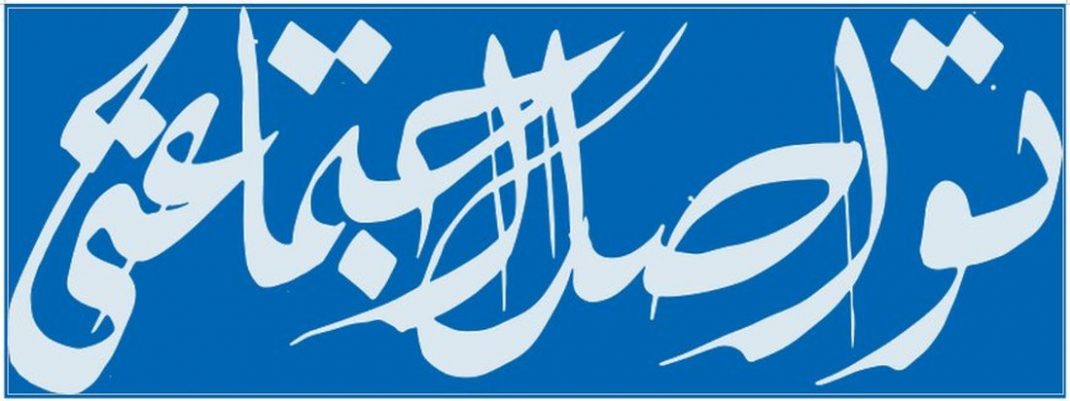(Dec. 2018 -Jan. 2019)
Analysis by Khadeja Ramali
 This publication is produced by Democracy Reporting International, based on social media data analysis by Khadeja Ramali.
This publication is produced by Democracy Reporting International, based on social media data analysis by Khadeja Ramali.
The publication is part of DRI’s project “Strengthening Libyan Civil Society Engagement on the Constitution and the Political Transition”, funded by the German Federal Foreign Office.
PART ONE
Executive summary
• While Libyans are active on social media (61% of the population of an estimated 6.5 million use Facebook), politics are not a major subject on social media. Most Libyans rather discuss entertainment.
• In terms of political issues, the most noteworthy developments of the last two months included strong social media campaigns for two potential candidates for President:
One page, called “Mandela Libya” (as in Nelson Mandela), was created in 2018 and promotes Saif al-Gaddafi. It managed to get over 103.400 Likes in less than a month, many of which seemed to be fake accounts. It also included a sponsored poll on his possible presidency in which 65.000 of the 71.000 participants support his candidacy.
The other social media campaign supports Hassan Tatanaki, whose professional page, created in 2013, has 1.3 million Likes. The page only posts news about Tatanaki but does not filter or respond to comments left by social media users.
• In December, a rumor about UNSMIL setting the date and place for the anticipated Comprehensive National Dialogue Conference was widely circulated online by both users and media outlets, prompting a backlash. Later, UNSMIL released a statement refuting the rumor, but it was not picked up by big media outlets and received an insignificant number of engagements.
• In December, a total of 61 articles were published by media outlets on social media about the constitution in Libya. Despite the apathy towards political news, an announcement made by the High National Elections Commission (HNEC) about the date for the constitutional referendum received considerable attention. The recorded engagement with this news item was the highest in comparison to other constitution-related news during the same month.
• In January, the total number of articles about the constitution dropped to 27 and so did the level of engagement with the constitutional-related content.
• In preparation for the municipal elections in Libya, the Facebook page of the Central Committee for the Municipal Councils Elections (CCMCE) has been active, responsive, and engaged. It quickly addressed imposter pages that pretended to represent the CCMCE and spread disinformation. Meanwhile, the page of the HNEC remains relatively inactive and unresponsive to users’ comments and questions.
• Women appear to avoid commenting on public Facebook groups/pages, while their presence is strong on private women-only groups. While Twitter seemed at times to be a safer place for Libyan female users to converse about women’s rights and other contentious topics, mainly in English, it has become less so. A recent attempt of female Twitter users in Benghazi to meet in a Café was prevented by forces of the Ministry of Interior.
• In December 2018, widely circulated fake news about an alleged crime surge in Benghazi contributed to the resignation of the Head of Benghazi security apparatus.
Introduction
Over the past eight years, the power and reach of the internet has grown substantially.
In 2011, social media was used as a tool to mobilize Libyans to revolt against Gaddafi. However, since 2014, social media, and Facebook in particular, is also much used for propaganda purposes by militias.
In December 2018, DRI has begun monitoring Facebook content posted on Libyan public pages established for or run by political figures, government institutions, media outlets and influencer in order to understand the social media landscape and debates in Libya.
It seeks to identify key narratives that shape the Libyan public opinion and map potential social media manipulation. The report offers an analysis of content consumed by Libyan users on Facebook and their online behavior regarding the constitution, elections and the political process in general.
This report covers findings of December and January. Until June, we will share our findings on a monthly basis.
Social Media Insights on the Constitution
In December, approximately 61 articles raising awareness about the constitution and addressing various aspects of the constitutional referendum were published on social media.
Users often display disinterest in political news, yet when the High National Elections Commission (HNEC) announced the date for the constitutional referendum, the post got an engagement of nearly 4000, which is considerably higher than engagement with other constitution-related topics published within the same time period.
In January, the total number of articles on the constitution dropped to 27, gathering only 4,505 engagements in total, out of which 4,388 were Likes.
The average engagement per article was around 167. The post that received the highest engagement of 1.500 was Almarsad article covering the House of Representatives’ proposed alternatives in case the constitutional referendum is not held.
…
Part 2: Social Media Insights on Elections
***
Khadeja Ramali, 27, is a geophysicist and co-founder of Project Silphium. She is currently collaborating with Libyan women’s Radio Network Project, which aims to expand the capacity of women media professionals in Libya.
_______________





